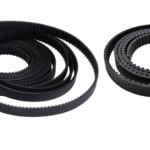If you’re a dog owner, you’ve likely come across natural remedies to keep your pup healthy and comfortable, and Apple Cider Vinegar for Dogs has become one of the most popular. This humble ingredient, made from fermented apples, is praised for its wide range of benefits, from soothing itchy skin to aiding digestion. In this article, we’ll explore the many uses and advantages of Apple Cider Vinegar for Dogs, especially for relieving skin irritation and itching.
Why Use Apple Cider Vinegar for Dogs?
Apple Cider Vinegar (ACV) is an organic product known for its acidic properties and high levels of beneficial compounds, such as acetic acid, probiotics, and enzymes. These properties make Apple Cider Vinegar for Dogs a go-to natural remedy to tackle various issues in a dog’s health, especially skin-related discomfort. ACV’s ability to balance pH levels, deter parasites, and provide a natural antibacterial effect is why so many pet owners rely on it for canine care.
Apple Cider Vinegar for Dogs’ Itchy Skin: Why It Works
The acidic pH of Apple Cider Vinegar for Dogs can help restore balance to a dog’s skin, especially when they’re suffering from itchiness caused by dry skin or allergies. Many dogs develop itchy skin as a result of environmental allergens, fungal infections, or bacterial imbalance. The mildly acidic nature of ACV helps to kill bacteria and fungi on the surface of the skin, reducing the itch and inflammation they cause.
How to Apply Apple Cider Vinegar for Dogs’ Itchy Skin
To safely use Apple Cider Vinegar for Dogs, it’s important to dilute it properly. A mixture of 50% water and 50% ACV is ideal for topical use. Spray or rub the solution onto your dog’s itchy skin, being careful to avoid any open wounds, as the vinegar could sting. For a quick bath, you can add a cup of Apple Cider Vinegar for Dogs into a tub filled with water. This bath will help to calm itchy skin and naturally deodorize your dog’s coat.

Apple Cider Vinegar Baths and Rinses
ACV baths are an effective and convenient way to use Apple Cider Vinegar for Dogs. Simply add a half-cup to a full cup of ACV to a bucket of water for a rinse, or mix it into your dog’s bath water. This method is especially helpful during warm months when dogs might be more prone to skin issues.
Benefits of Apple Cider Vinegar Baths
- Soothes Itchy Skin: Rinsing with Apple Cider Vinegar for Dogs calms irritation from itching caused by dryness, allergies, or mild infections.
- Repels Fleas: ACV is known to deter fleas and ticks, reducing the need for harsh chemicals.
- Deodorizes Naturally: Many dog owners find that Apple Cider Vinegar for Dogs helps reduce doggy odor by balancing the skin’s natural oils.
More Skin Benefits of Apple Cider Vinegar for Dogs
ACV’s antiseptic and antifungal properties mean it can be used for more than just itchy skin. Apple Cider Vinegar for Dogs helps with:
- Hot Spots: Apple Cider Vinegar can dry out the moist, irritated skin found in hot spots, helping them heal faster.
- Minor Skin Infections: The antibacterial and antifungal properties of Apple Cider Vinegar for Dogs make it useful for treating skin infections and preventing new ones from developing.
- Control Skin Odor: For dogs with skin issues that result in unpleasant odor, Apple Cider Vinegar for Dogs can naturally neutralize this smell.
Apple cider vinegar’s internal benefits for dogs
While Apple Cider Vinegar for Dogs is commonly used on the skin, it’s also beneficial when added to their diet in small amounts. Dogs with digestion or immune issues may benefit from ACV’s probiotic and balancing effects. However, always consult your veterinarian before adding anything new to your dog’s diet.
Digestive Aid
Small amounts of Apple Cider Vinegar for dogs in their water or food can aid in digestion. It encourages a healthy gut environment by promoting the growth of beneficial bacteria, which in turn helps with nutrient absorption and can alleviate bloating or gas in dogs.
Immune Boost
Thanks to its natural enzymes and probiotics, Apple Cider Vinegar for Dogs may strengthen the immune system over time. When the body’s pH is balanced, it’s easier to resist infections and other illnesses, making ACV a great immune supporter for dogs prone to sickness or seasonal allergies.
Joint Health
For dogs with arthritis or joint pain, some believe that Apple Cider Vinegar for Dogs helps to dissolve calcium deposits around the joints, reducing discomfort. While scientific research is limited in this area, many pet owners report seeing improvement in their dogs’ mobility after adding ACV to their regimen.

Safety Tips for Using Apple Cider Vinegar for Dogs
Although Apple Cider Vinegar for Dogs is generally safe, it’s essential to use it carefully. The following advice will help you keep your dog safe:
- Dilution Is Key: ACV should always be diluted with water before applying it to your dog’s skin or adding it to its diet. A good rule of thumb for topical application is a 50:50 mixture, while dietary uses should start with just a few drops.
- Avoid Open Wounds: Never apply Apple Cider Vinegar for Dogs directly to open wounds, as the acidity will sting.
- Test for Sensitivity: Some dogs may have a sensitivity to ACV. Always test a small patch of skin first to check for any adverse reaction.
- Consult Your Vet: Before making any significant changes to your dog’s routine, especially with dietary supplements like Apple Cider Vinegar for Dogs, check with your veterinarian.
How to Incorporate Apple Cider Vinegar for Dogs into Daily Care
Tailoring Apple Cider Vinegar Usage Based on Breed, Size, and Condition
Not all dogs have the same skin needs, so how you use Apple Cider Vinegar for Dogs can depend on factors such as their breed, size, and specific health condition. Dogs with thick coats might benefit more from diluted ACV baths, while smaller breeds with sensitive skin may need lighter topical applications. Experimenting with frequency and dosage can help find what works best for your pet.
Combining Apple Cider Vinegar with Other Remedies
Some pet owners like to combine Apple Cider Vinegar for Dogs with coconut oil or other natural oils to further benefit their dog’s coat and skin. Mixing a small amount of ACV with these oils can create a protective, moisturizing treatment that both soothes and nourishes your dog’s skin.

Signs of Improvement and Monitoring Progress
After introducing Apple Cider Vinegar for Dogs into your dog’s routine, pay close attention to any improvements in their skin condition and overall health. Reduced scratching, healthier coat appearance, and decreased odor are all signs that the treatment is working. If your dog continues to itch or shows signs of discomfort, consult with a veterinarian for further advice.
Potential Alternatives to Apple Cider Vinegar for Dogs with Sensitivities
If your dog reacts poorly to ACV, there are other natural remedies to consider. Colloidal oatmeal baths, aloe vera gel, and chamomile tea soaks can also provide relief for itchy skin and are suitable for dogs with sensitivities to ACV. However, Apple Cider Vinegar for Dogs remains one of the most versatile and widely accessible solutions for a range of canine skin and health issues.
Conclusion
Apple Cider Vinegar for Dogs offers a range of benefits that make it an excellent choice for natural pet care. From soothing itchy skin to improving digestive health, it’s a versatile remedy that can be easily incorporated into your dog’s wellness routine. With proper application and precautions, ACV can bring comfort and health benefits to your canine companion, all while being an affordable, accessible solution.











